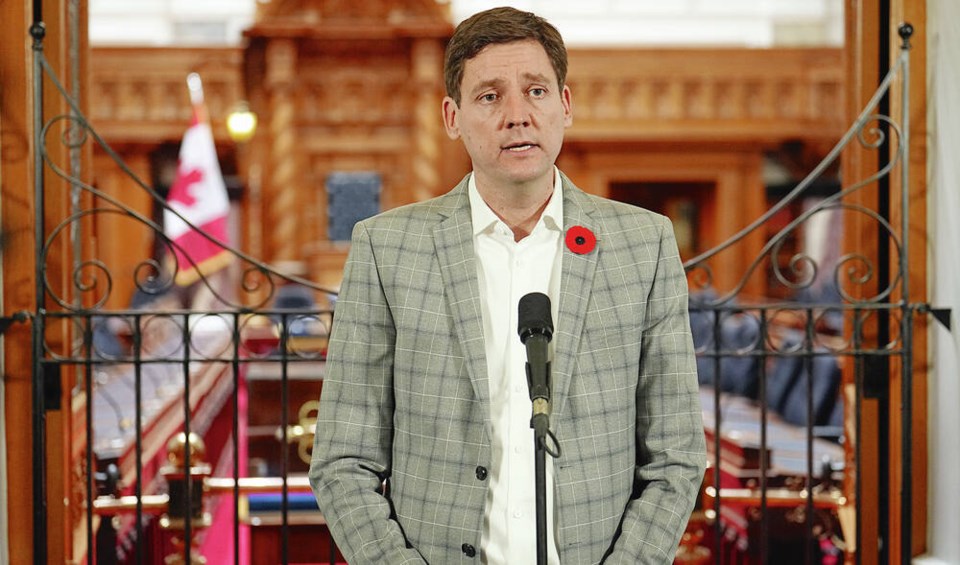Why did a BC NDP election campaign overwhelmingly focused on attacking the character of the BC Conservatives fail to prevent a blue wave that came within 27 votes of toppling the governing party?
Partly because voters didn’t much care for, or about, all the New Democrat mudslinging. They were just hopping mad about some very specific issues.
That’s the conclusion of a post-election survey by polling firm Navigator, which provides an interesting glimpse into the public sentiment following the Oct. 19 election (margin of error +/- 3.9 per cent, 19 times out of 20).
Navigator polled 1,000 people online from Oct. 20-23, and held four focus groups.
Almost three-quarters of people said they saw and heard the attacks by the political parties during the campaign, but 76 per cent of respondents said it had little to no impact on how they voted.
It’s an important conclusion, when you consider the bulk of the 28-day NDP election strategy centred around daily releases of controversial social media posts by candidates and leader John Rustad to underpin the message that the party was unfit for public office.
Yet, according to the survey, all the controversy had very little impact in influencing voter intentions. More than half the respondents said they’d made up their minds by the time BC United Leader Kevin Falcon folded up his campaign Aug. 29 — before the NDP even began the negative campaign blitz. And 69 per cent of respondents said they’d decided who to support before even watching the Oct. 8 TV leaders debate.
The leaders themselves failed to excite either the public, or their party bases, according to Navigator.
Rustad and NDP Leader David Eby had “muted” support, and it only grew more negative as the campaign wore on, according to the results.
Only 36 per cent of people who voted NDP in the survey said they liked Eby, and only 19 per cent of people said they voted New Democrat because of the leader. The numbers are even worse for Rustad, at 21 per cent and nine per cent respectively.
Those are sobering figures for two leaders who are going to face caucus support issues in the months and years ahead. It could embolden those seeking to challenge their leadership.
New Democrats supporters in the survey cited things like party ideology, a belief the NDP could best tackle the issues and an attempt to block another party as reasons for their vote, according to Navigator. For Conservatives, far and away, the motivating factor was simply a change in government and a reversal of NDP policies.
Voters in the survey were overwhelmingly upset about two main issues: Cost of living and the health-care crisis caused by the ongoing shortage of doctors and nurses. Street disorder, crime and addictions rounded out other issues.
Eby has indicated he’ll focus on affordability and health care with his new, slim, one-seat majority government. That means accelerating his promise for a $1,000 (income-based) affordability cheque for B.C. households.
The NDP is still negotiating with the BC Greens for support to backstop its slim majority. The Greens campaigned on preserving the carbon tax. But 67 per cent of respondents in the survey said they support eliminating it (should Ottawa allow the province to do that one day), with majority support from all party supporters, including the BC Greens.
Those numbers, combined with the overwhelming concern about affordability, should give the NDP pause before inking any deal with the Greens that swaps votes for a redoubled carbon tax.
In the end, the NDP’s saving grace may be that voters would prefer to give it a chance to fix things, with 62 per cent of people, across all parties, worried that the close election result could prevent quick, decisive action on issues. A majority don’t want to see another election right away.
It’s a path forward for the NDP and Eby, if they chose to take it.
Rob Shaw has spent more than 16 years covering B.C. politics, now reporting for CHEK News and writing for Glacier Media. He is the co-author of the national bestselling book A Matter of Confidence, host of the weekly podcast Political Capital, and a regular guest on CBC Radio.



